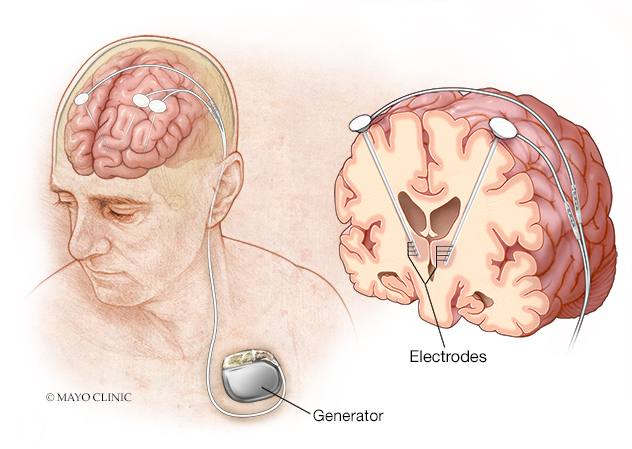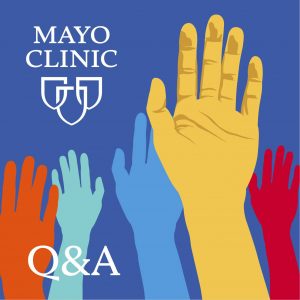-
Mayo Clinic Q&A Podcast
Mayo Clinic Q&A podcast: Using AI to improve brain stimulation devices that treat disease

For people with epilepsy and movement disorders such as Parkinson's disease, electrical stimulation of the brain can be part of their treatment.
"Many of the diseases that we think about as neurological diseases are diseases of circuitry in the brain," says Dr. Kai Miller, a Mayo Clinic neurosurgeon. "And one way we can interact with those circuits in order to have patients have improvement in their symptoms is to use electrical stimulation."
Brain stimulation treatment also may help people with psychiatric illness and direct brain injuries, such as stroke. But understanding how brain networks interact with each other is complicated. To improve and expand treatment options, Mayo Clinic and Google Research are using artificial intelligence (AI) to develop a new algorithm to improve brain stimulation devices.
"Artificial intelligence is a set of mathematical and statistical tools that we can use to distinguish different types of brain measurements," explains Dr. Dora Hermes, a Mayo Clinic biomedical engineer and researcher on the project. "There is a lot we can do with artificial intelligence or machine learning tools. And in this case, we used it to distinguish different types of inputs to a particular brain area in an automated fashion."
On the Mayo Clinic Q&A podcast, Drs. Miller and Dr. Hermes, first author and senior author on the AI algorithm study, respectively, discuss the use of artificial intelligence to improve brain stimulation treatments.
Read more about the work of Mayo Clinic and Google Research on AI and brain stimulation devices.
Watch: Dr. Miller and Dr. Hermes discuss AI research.
For the safety of its patients, staff and visitors, Mayo Clinic has strict masking policies in place. Anyone shown without a mask was recorded prior to COVID-19 or recorded in an area not designated for patient care, where social distancing and other safety protocols were followed.
For more information and all your COVID-19 coverage, go to the Mayo Clinic News Network and mayoclinic.org.

Related Articles







